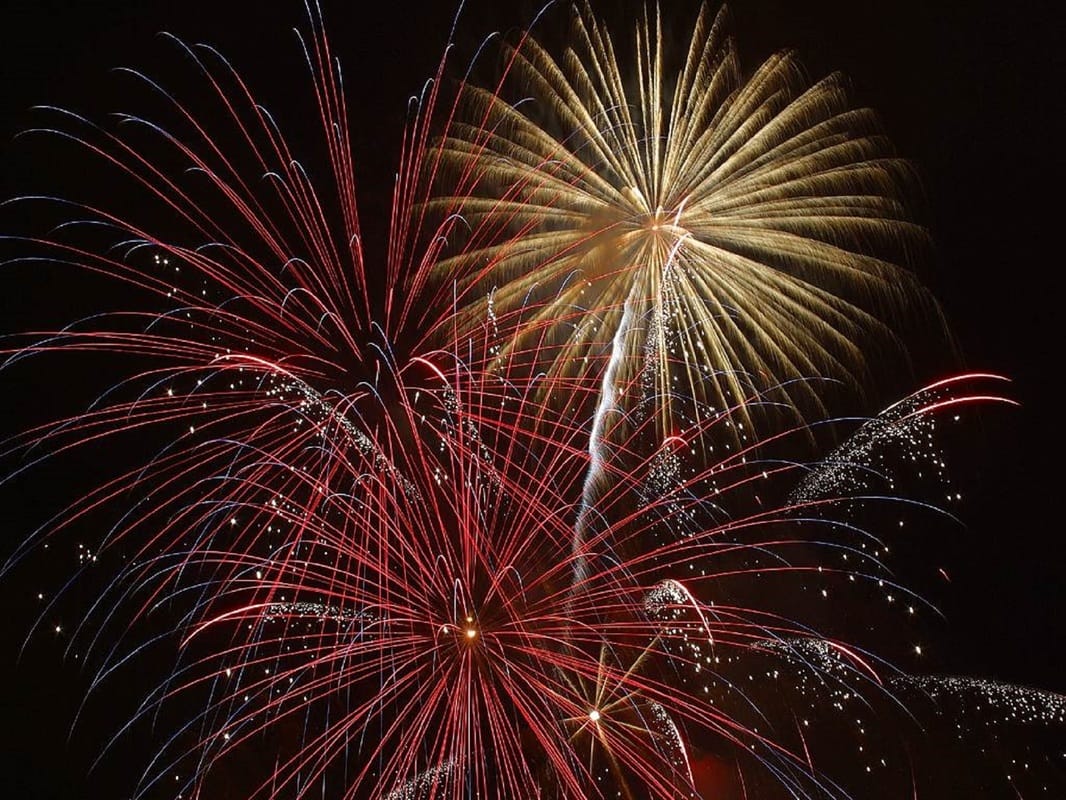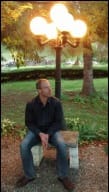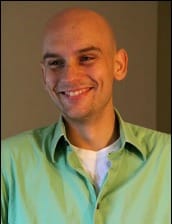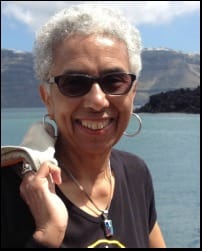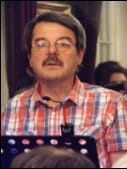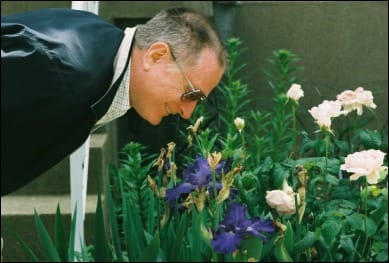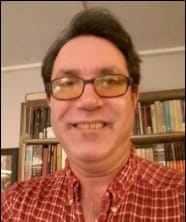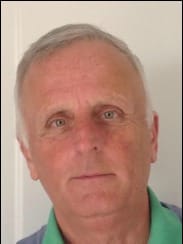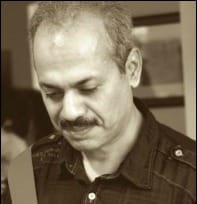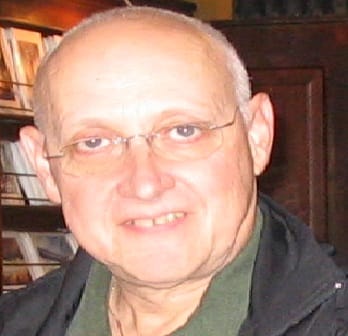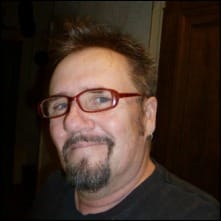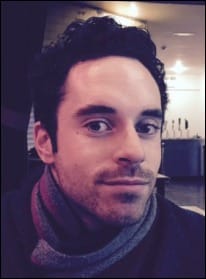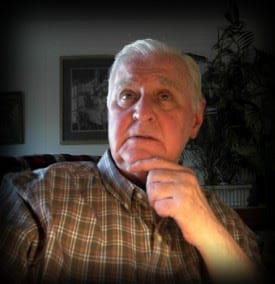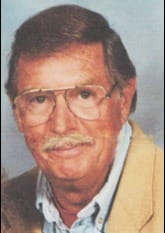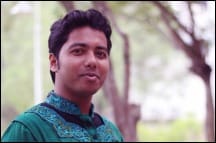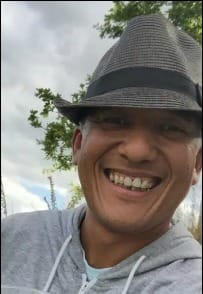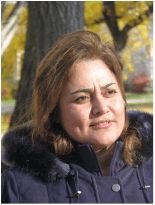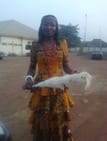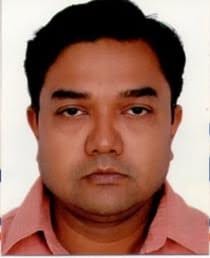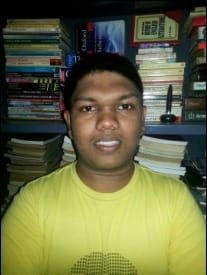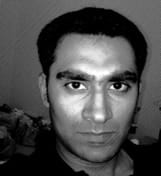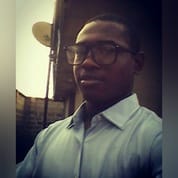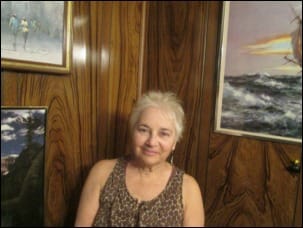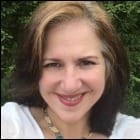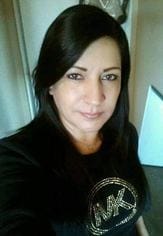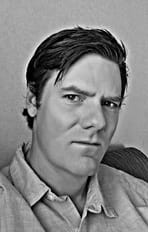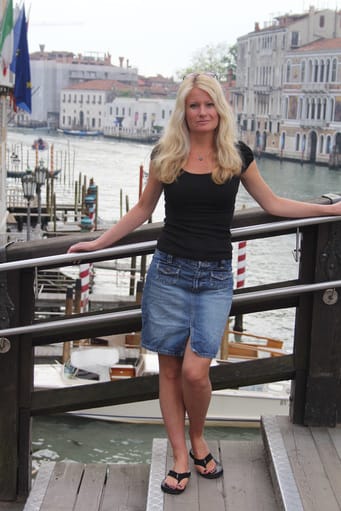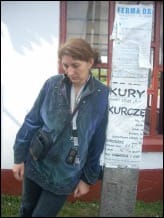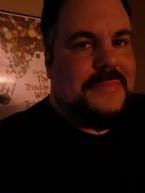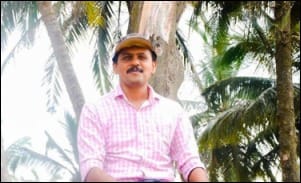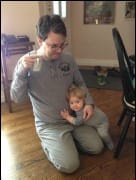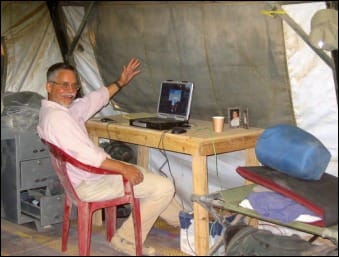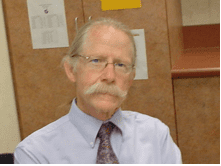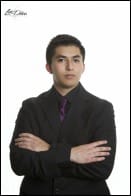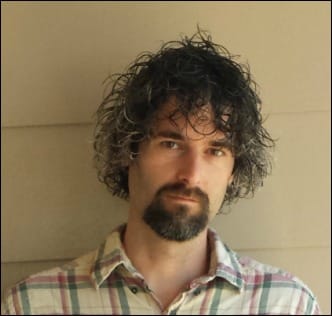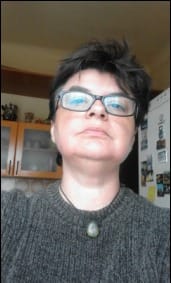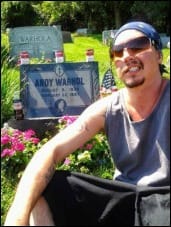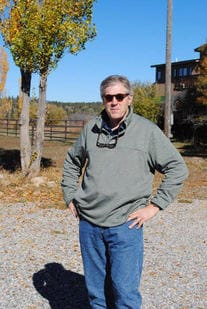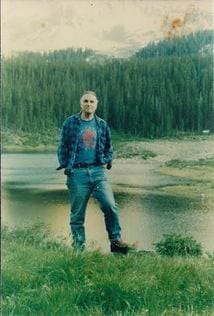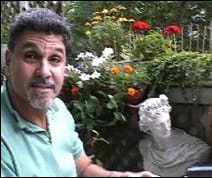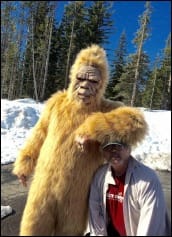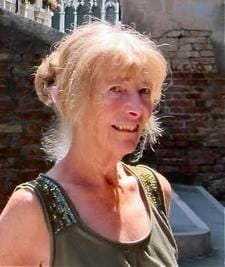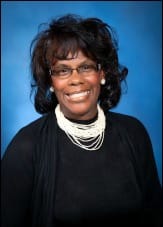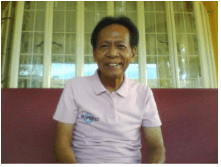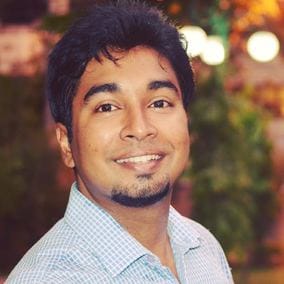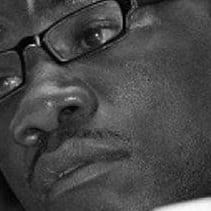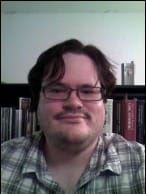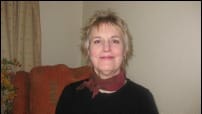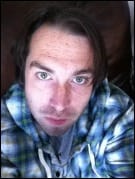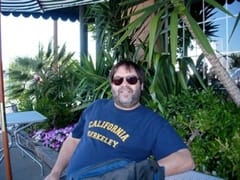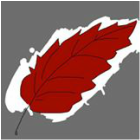|
END-YEAR REVIEW Dear Readers and Authors, We've had a great year together, haven't we? We've travelled all over the world and enjoyed poems and stories, seen beautiful pieces of art and partaken into interesting opinions! We've laughed or cried but - much more important - we've had a chance to stop and reflect. Between January 15 2016 (our inaugural issue of the magazine) and December 31 2016, there were 438,044 hits (we're missing the data for two weeks, though). We hope that the new year would bring much more. We'd like to present a review of the year. Just click on the images below and you'll have the oportunity to read one of the best pieces featured in our magazine in 2016. By no means, the authors featured here are the only ones who honored our magazine with their work and, please, keep in mind that the order of the photos is random.
0 Comments
INTERVIEW WITH INDUNIL MADHUSANKHA 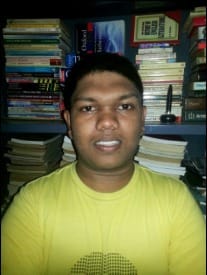 Indunil Madhusankha is an internationally published promising young poet from Sri Lanka. He is currently an undergraduate reading for a BSc (Hons) Special Degree in Mathematics in the Faculty of Science, University of Colombo and he takes a great interest in the subjects of Mathematics, Statistics, and Computer Science. In addition to Indunil’s involvement in the field of Physical Sciences, he also pursues a notable literary career. He achieved three gold medals and a silver medal from four All Island English Essay Competitions. Further, he presented several papers related to Education and English Language Studies at several national and international level conferences, and he contributed a few review articles to a couple of peer-reviewed international journals. He has undertaken several research projects pertaining to the areas of ELT, CLIL, and English Literature. Also, he completed the TKT examination and the three specialist modules YL, KAL, and CLIL. Indunil compiled his first collection of poetry entitled, Oasis when he was sixteen and he is currently working on his second collection, Reflections of Life and also on a book titled, A Rare Kind of Beauty, Yet Unexplored: A Selection of Modern Sri Lankan Sinhala Poetry featuring a translation of a set of select Sinhala poems written by some renowned Sri Lankan poets. He also enjoys interviewing fellow poets and practising the art of performance poetry. Moreover, his creative and academic works have been published in many international journals, magazines, websites and anthologies in the United States, the United Kingdom, Canada, Africa, Nigeria, India, Sri Lanka and some other countries. Welcome to Scarlet Leaf Review!
Q: Tell us a little about yourself and your background. I am a simple person with an ardent passion for learning. I am basically a student of Mathematics and Statistics, and additionally I am involved in studies pertaining to such areas as Education, Psychology, and Language & Literary Studies. During my spare time, I read and work on poetry and several other forms of creative writing. My mother tongue is Sinhala. Also, I read works written in both English and Sinhala, but currently I write only in English. Q: Do you think that your school years have had an impact on your writing career? If so, what were you like at school? Yes, of course. My school years have certainly had a tremendous impact on my writing career. Those days, I clinched many awards in several national and provincial level English essay competitions and creative writing contests. Also, I had many of my creative compositions published in some local newspapers when I was young. Besides that, during my school days, I used to write in Sinhala too, and even won awards for many such creations. I, therefore, believe that all these achievements have certainly influenced my writing career. Q: Were you good at English or like Einstein you excel now in a field that was a nightmare for you as a student? Actually, I was good in my English since I was ten even though English is not my first language. Q: What are your future ambitions for your writing career? Like every other writer, I also have the dream of publishing my own collection of poetry one day. Q: Which poets have inspired you and how? What was their impact on your work or your literary perspective? There is a lot, but to list a few, I have been inspired by such great poets as William Shakespeare, William Wordsworth, William Blake, Emily Dickinson, Robert Frost, W.B. Yeats and Wilfred Owen. I also love the works of Sri Lankan English poets like Patrick Fernando, Lakdasa Wikkramasinha, Anne Ranasinghe, Yasmine Gooneratne and Jean Arasanayagam. Apart from that, I highly appreciate the writings of Sri Lankan Sinhala poets such as Kumaratunga Munidasa, Gajaman Nona, Wimal Dissanayake, Parakrama Kodituwakku and Monika Ruwanpathirana. I am marveled at the effective use of language and literary techniques, choice of thematic concerns and the universal appeal in the work of the above writers. Q: So, would you mind telling us what you have written so far? Basically, I am a poet. But, I occasionally write essays and short stories too. I also like to translate well-known Sri Lankan Sinhala poems into the English language. Further, I have interviewed some of my fellow poets and I am also interested in authoring literary reviews. Moreover, I work on abstracts, research proposals and research papers. Please see the attached documents for a list of my publications and some prominent awards that I have won. Q: Where can we buy or see them? Please refer to the links mentioned at the end for some of my writings. Q: What are you working on at the minute? What’s it about? I am currently working as a reader/reviewer for the upcoming anthology, Dandelion in a Vase of Roses edited by the highly acclaimed poet, Michael Lee Johnson. This anthology comes out as a book project by his large Facebook poetry group, Contemporary Poets, Their Works, Current Poetry Projects, News, Links the link for which is given below. https://www.facebook.com/groups/807679459328998/ Q: When did you decide to become a poet? What was the decisive factor or you just took a pen and started writing poems? I decided to become a poet when I was about fourteen years old after reading and being inspired by some stunning literary texts that had been prescribed for my English Literature course. Q: What makes you write? What’s the force behind taking your pen (or your keyboard) and put verses down? In most cases, it is social injustices which drive me to write. In my viewpoint, poetry is a microscope which the writer can use in order to zoom out to a subtler view of the varied social realities. But any scenery, event or situation that influences or inspires me deserves some kind of poetic exploration from my end. Q: Do you write full-time or part-time? Do you have a special time to write or do you write every day, 5 days a week or as and when? I write part-time and I do not stick to a particular time schedule when it comes to writing. I do write whenever the thoughts come to my mind, be it in a bus, at the lunch table or at a lecture hall. Q: Where do your ideas come from? Or is it just the spur of the moment, a special feeling you experience or a specific conjuncture that offers you inspiration? I think it is, in most cases, the spur of the moment. Q: How do you think you’ve evolved creatively? To be short and sweet, I think that the two clichés, Reading maketh a full man and Try and try, one day you can fly would explain it better. Q: In your opinion, what is the hardest thing about writing? To me, the hardest thing about writing is being adequately motivated. Q: Now, what about the easiest thing about writing? Well, the easiest thing about writing is, as I think, proofreading and editing. Q: Do you let the book stew – leave it for a month and then come back to it to edit? No. I try my best to finish things as quickly as possible because I find it irritating when some business remains unfinished for a long time without being attended to. Q: Do you read much and if so who are your favorite authors? For your own reading, do you prefer eBooks or traditional paper/hard back books? With my busy academic schedule and other obligations, presently I do not have a lot of time for reading books. But whenever I get the time, I read Shakespeare, Jane Austen and a lot of other famous writers, both local and foreign. I prefer traditional paperback books. Q: What book are you reading at present? At present, I am reading the novel, Waiting Earth by Punyakante Wijenaike who is a well-known Sri Lankan English author. Q: Do you proofread/edit all your own books or do you get someone to do that for you? Usually, I myself proofread and edit my own writings. Q: What would you say are the main advantages and disadvantages of self-publishing against being published or the other way around? Self-publishing sounds nice because the book can be tailored to our own needs but the process is really hectic. On the contrary, if we choose to get published by an editor or some publishing house, we have barely anything to do with the publishing process. That is good because we do not have to undertake any tedious tasks with regard to publishing, but sometimes it seems disadvantageous not to have any control over the process. Q: How do you relax? I read and write poetry in order to experience a sense of relaxation. Q: What is your favorite motivational phrase? What is your favorite positive saying? The heights by great men reached and kept were not attained by sudden flight, but they, while their companions slept, were toiling upward in the night. The mind is everything. What you think you become. – Buddha Q: What is your favorite book and why? It is really difficult to choose one when you have a personal library comprised of many enticing books belonging to various genres and cultures. But to name a few, I love Shakespeare’s theatrical masterpiece, Macbeth, Jane Austen’s novel, Pride and Prejudice, Alexander Pope’s mock heroic, The Rape of the Lock, Anita Desai’s novel for children, The Village by the Sea and Martin Wickramasinghe’s novel, Madol Doova. These outstanding literary works have influenced me prodigiously throughout my writing career. Q: What is your favorite quote? This we know: the earth does not belong to man, man belongs to the earth. All things are connected like the blood that unites us all. Man did not weave the web of life, he is merely a strand in it. Whatever he does to the web, he does to himself. Chief Seattle – Chief of Suquamish Indians in his letter to the American Government in 1854. Q: Where can you see yourself in 5 years-time? Most probably excelling in my postgraduate studies as a doctoral student in the United Kingdom or the United States. Q: Which famous person, living or dead would you like to meet and why? I would like to meet William Wordsworth and listen to the wonderful stories of how he derived such spectacular imagery from nature. Q: What advice would you give to aspiring writers? As a beginner, it is quite important that an aspiring writer does an admirable amount of reading. Also, it is necessary to bear in mind that the harder we try, the more we reap. Therefore, try to evolve and improve your creative skill as you go on writing until some editor decides to accept your piece/s. Expert comments and reviews are also of paramount importance. It is thus better if you can get somebody to support you through the initial phase of your writing career. Further, it is vital that you refrain from being disheartened by negative feedback. Just take them as a source of inspiration. Q: Where do you see publishing going in the future? With the burgeoning increase of internet platforms, we are presently witnessing an unprecedented flourishing of creativity on the web. This has hence led to a revolutionary development in the publishing industry. Thanks to the widespread availability of so-called digital platforms, at present, anyone from any part of the globe has the opportunity to showcase his/her literary talents to a massive international readership. So, I am of the belief that with the growing advancements in the sphere of information and communication technology, publishing industry will explore new dimensions and thus will surely thrive in the years to come. Q: Is there anything else you would like to add that I haven’t included? Yes, I would like to take this opportunity to express my genuine gratitude to the team at Scarlet Leaf Review, especially Roxana Nastase, the Editor-in-Chief who has always been very supportive and kind-hearted to the readers and contributors. Also, it is with a true sense of pride and happiness that I grab this moment to honestly thank my parents, brothers, teachers and colleagues for always being there for me in my journey through life. Q: How can readers discover more about you and you work? Facebook: https://www.facebook.com/indunil.madhusankha Twitter: https://twitter.com/indunilmadhu Google: https://plus.google.com/+IndunilMadhusankha/ Lnkedin: https://www.linkedin.com/in/indunil-madhusankha-31858462 Amazon Author Page: https://www.amazon.com/s?ie=UTF8&page=1&rh=n%3A283155%2Cp_27%3AIndunil%20Madhusankha%20Bassa%20Hewayalage Goodreads: http://www.goodreads.com/author/show/13561134.Indunil_Madhusankha_Bassa_Hewayalage Thank you very much for taking the time out of your busy schedule to take part in this interview. 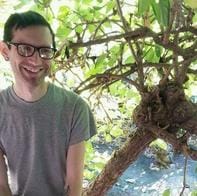 Gregory T. Janetka is a writer from Chicago who currently lives in the outskirts of San Diego where he is inspired by pretty things. His work has previously been published in Foliate Oak, Flyover County Review, Gambling the Aisle, Deltona Howl and The Flash Fiction Press. He is terribly good at jigsaw puzzles and drinks a great deal of tea. More of his writings can be found at gregorytjanetka.com. INTERVIEW WITH GREGORY T. JANETKA Welcome to Scarlet Leaf Review!
Q: Tell us a little about yourself and your background. I grew up in the western suburbs of Chicago, went to college in D.C. then bounced around between Chicago and Orlando before moving to Alabama and finally San Diego, where I currently reside. Chicago, however, will always be home and consistently finds its way into my work. I began creating stories in my head in order to help me fall asleep when I was very little. Soon after I started writing them down and haven’t stopped since. Q: Do you think that your school years have had an impact in your writing career? If so, what were you like at school? Absolutely. I was lucky to have many great teachers across many disciplines. What stood out to me across all subjects was the storytelling aspect. If the teacher was a good storyteller I’d pay more attention and get more out of the class. Q: Were you good at English or like Einstein you excel now in a field that was a nightmare for you as a student? I loved English in terms of reading and analyzing texts but when it came to all the grammar rules I immediately lost interest. Writing has rules and formulas, of course, but breaking it down to that level seemed like an attempt to kill the magic that words and language inherently possess so I just went with what sounded and felt right and was correct about 95 percent of the time. Q: What are your future ambitions for your writing career? Of course like any writer I’d like to be able to survive by writing fiction alone but realizing how unlikely that is, all I can hope for is the time to always keep writing no matter what else happens in life. Q: So, would you mind telling us what you have written so far? As far as published work I have had a number of short stories and poems in literary magazines, but have also finished a novel and a novella and am currently seeking representation for both. Q: What are you working on at the minute? What’s it about? I have major issues with focus and so am always working on multiple projects. The two main ones at the moment include a short story dealing with the tenuous nature of friendships and the beginnings of a second novel set in early 1900s Chicago. Q: What genre are your books and what draws you to this genre? I suppose what I write usually falls under the general heading of literary fiction. My novel and novella, however, are historical fiction as I find it easier to fictionalize and distance myself from the real life events that inspired them. Also because I know what it’s like to live in my own time period and want to better understand and explore how others have lived in the past. Q: When did you decide to become a writer and why? What was the principal reason for taking up a pen (metaphorical speaking) and write that first sentence? I’ve always loved writing stories but didn’t seek to do anything with them until a few years ago. Out of a feeling of duty, and because I figured no one would ever want to read my stories, I studied political science in college. I spent time in class, however, filling the margins of my notebooks with story notes and ideas. The desire was always there, lurking. In December 2013, I quit my job in order to travel the country for 80 days and finish my novel and haven’t looked back since. Q: Do you write full-time or part-time? Do you have a special time to write or do you write every day, 5 days a week or as and when? I’d love to write full-time but without being independently wealthy that’s not an option. I write what I can when I can, usually bits at a time. When you truly love something you’ll always find a way to do it. Q: Where do your ideas come from? Or is it just the spur of the moment, a special feeling you experience or a specific conjuncture that offers you inspiration? We’re always surrounded by endless ideas but who knows what makes us see some and not others. And what makes us run with one over all the others that we do see. I love that there is mystery to writing. Q: How do you think you’ve evolved creatively? I’m not sure I have. Q: Do you work to an outline or plot or do you prefer just see where an idea takes you? An idea comes and I write until everything in my head is down on paper or until my arm literally goes numb and I can’t write any longer. I let that, whatever it may be, sit until I have some distance from it then I go back and see how to possibly structure it and what basic components, if any, it is missing. Q: In your opinion, what is the hardest thing about writing? Finding the time and quiet in which to do it. Q: Now, what about the easiest thing about writing? The fact that there is always more to be explored, always more words and language to play with. Q: Do you ever get writer’s Block and if so do you have any tips on how to get through the dreaded writer’s block? I’m not sure I understand the idea of writer’s block. If you’re a writer, you write. What you produce may be junk but everyone writes junk. If one story gets held up or isn’t working you move onto another. Writer’s write. Q: Do you read much and if so who are your favorite authors? For your own reading, do you prefer eBooks or traditional paper/hard back books? To me reading is as nearly as much a tactile as it is a mental experience and so I prefer traditional books, used ones if possible. The feel of the pages, the smell of them, of taking a pencil to them to underline great sentences, to holding in my hand a well worn book that has been read who knows how many times by how many people, of taking that journey that they’ve taken and seeing what they’ve left behind, be it notes or dog-eared pages or coffee stains. Reading is anything but a solitary experience. Q: What book are you reading at present? The Stories of John Cheever and Bleak House Q: How do you relax? I’m not sure I’ve ever been able to. Q: What is your favorite book and why? The Great Gatsby. My high school English teacher Mrs. Smith assigned it for class and to her I will forever be grateful. Those sentences, each a treasure. That’s how I wanted to write. Not to just come up with stories but to be a storyteller. That work led me to the rest of Fitzgerald’s work and to a love of the Lost Generation of the 1920s. Q: Where can you see yourself in 5 years-time? Ideally embodying the cliche of living in a small Parisian apartment near the Seine with my love and my cat, drinking copious amounts of tea. In reality all I know is I’ll be scratching out my little stories somewhere. Q: What advice would you give to your younger self? Don’t change anything, just pay close attention as it will all be useful one day. Q: What advice would you give to aspiring writers? Have great adventures. And always carry a pen and paper with you. Once an idea is gone it’s gone. Q: Is there anything else you would like to add that I haven’t included? I just want to say thanks to Roxanna and Scarlet Leaf Review for this opportunity! Q: How can readers discover more about you and you work? Website: https://gregorytjanetka.com/ Facebook: https://www.facebook.com/g.tarsiscis.janetka Twitter: https://twitter.com/greg_janetka Lnkedin: https://www.linkedin.com/in/gregory-t-janetka-5b05ab19 Goodreads: https://www.goodreads.com/user/show/6084462-gregory-t-janetka Thank you very much for taking the time out of your busy schedule to take part in this interview. INTERVIEW WITH B. CRAIG GRAFTON Author is a retired attorney having practiced for 35 years in Illinois who now lives in Texas and started writing stories about a year and a half ago. Welcome to Scarlet Leaf Review!
Q: Tell us a little about yourself and your background. Retired attorney. Practiced 1973-2008 in Illinois. Retired and moved to Texas 2011.. Q: Do you think that your school years have had an impact in your writing career? If so, what were you like at school? No. Q: Were you good at English or like Einstein you excel now in a field that was a nightmare for you as a student? Not good at English grammar but wrote clever funny essays that my last English teacher liked and gave me good grades. Q: What are your future ambitions for your writing career? None. I’m too old to have a writing career. I only have one career to look forward to, death the final career. Q: So, would you mind telling us what you have written so far? Just silly stories for online magazines. Q: When did you decide to become a writer and why? What was the principal reason for taking up a pen (metaphorical speaking) and write that first sentence? I have never have decided to become a writer. Q: Do you write full-time or part-time? Do you have a special time to write or do you write every day, 5 days a week or as and when? Part time three or four stories a month. Q: Where do your ideas come from? Or is it just the spur of the moment, a special feeling you experience or a specific conjuncture that offers you inspiration? I’m sixty nine. Old people have seen a lot. Thinking back it’s easy to come up with ideas. Q: How do you think you’ve evolved creatively? No. At same level as I was in high school. Q: Do you work to an outline or plot or do you prefer just see where an idea takes you? Outline it in my mind and see where it goes from there once I start typing. Q: In your opinion, what is the hardest thing about writing? Forcing myself to start typing. Q: Now, what about the easiest thing about writing? Once I get going it’s hard to quit. Q: Do you ever get writer’s Block and if so do you have any tips on how to get through the dreaded writer’s block? No. Q: Do you read much and if so who are your favorite authors? For your own reading, do you prefer eBooks or traditional paper/hard back books? I read fiction, mysteries and contemporary thrillers, non fiction history and biographies, and short story collections of a literary nature. Q: What book/s are you reading at present? A book about the Jewish resistance to the Nazis in Poland during WWII. Q: How do you relax? Read. Q: What is your favorite motivational phrase? What is your favorite positive saying? “You’ll never learn any younger.” My father’s father used to say that to me when I was little. He would then proceed to learn me about whatever it was that he was just talking about. Even if my old age based on that I try to learn something new every day. Q: What is your favorite quote? The one above. Q: Where can you see yourself in 5 years-time? Deceased. Q: What advice would you give to your younger self? There’s no substitute for hard work and honesty. (I made that one up not my grandfather,) Q: What advice would you give to aspiring writers? My advice would be, “Ask someone else. I’m not qualified to give advice.” Q: Where do you see publishing going in the future? Nowhere I’m too old for a future. Q: Is there anything else you would like to add that I haven’t included? See P.S. below. Q: How can readers discover more about you and you work? I have none of these things. Thank you very much for taking the time out of your busy schedule to take part in this interview. P.S.----- I know that these answers aren’t much and if you don’t print them I understand. Making up these stories and committing them to paper is something I view as a challenge. Something to do in my old age. I certainly wouldn’t have had the time or even thought of doing so when I was young and in business. It’s a challenge to see if I can do it and get somebody to print them. That’s enough for me. If they ever get beyond the internet it will be sheer luck as I have no idea how to market them and one thing that I’ve learned through the years is that luck has a lot to with the outcome of one’s life. (But then again one can create his own luck by jumping at all opportunities.) Thank you again for printing what I have sent you. I really appreciate it. Good luck with your magazine. I can see that you have all the necessary spirit, desire, drive and ambition to succeed. I’m sure you’ll be successful. B. Craig Grafton Thank you Mr. Grafton, both for your kind words and for your valuable contribution to our magazine. NT Franklin - I write after my real job hoping one day to have it be my real job. When I’m not reading or writing short stories, you might find me fishing or solving crossword puzzles. INTERVIEW WITH NT FRANKLIN Welcome to Scarlet Leaf Review! Q: Tell us a little about yourself and your background. I am a professional scientist/University Professor. I have decades of experience writing for academic journals, but I am new to writing fiction. I don’t spend enough time fishing or writing fiction. That needs to change. Q: Do you think that your school years have had an impact in your writing career? If so, what were you like at school? Of course! What other response could an academician give? I was a good student, perhaps under challenged at times. Q: Were you good at English or like Einstein you excel now in a field that was a nightmare for you as a student? I liked English, particularly sentenced structure and grammar. My focus was on the sciences, not on English. But reading is some of the best training for writing. Q: What are your future ambitions for your writing career? Career may be too strong of a word. I hope to continue to have people enjoy my prose. Q: Which poets have inspired you and how? What was their impact on your work or your literary perspective? I have never read much poetry, but I have read Walt Whitman. I would say less in was writing and more in perspective. I gleaned “be yourself” from Leaves of Grass. Q: So, would you mind telling us what you have written so far? I have two short stories published right here on The Scarlet Leaf Review (The Hitman, April 2016; Stolen Life, July 2016). I have been experimenting with some Flash Fiction and have had a few published. Q: Where can we buy or see them? My two short stories are available here on The Scarlet Leaf Review! Q: What are you working on at the minute? What’s it about? I’m writing a series of middle group (MG) stories about the misadventures of two young teenage boys, “Me and Bart.” The stories are set in the late 1960’s when it was a simpler time with no cell phones and free-range kids. They go on escapades that result in harmless mischief. The stories are intended to entertain. There is no intent to deliver a moral message, just stories about rambunctious young boys. And of course, I’m still writing cozy mysteries. Q: What genre are your books and what draws you to this genre? I don’t have any books, but I am planning to put “Me and Bart” stories into a book. Q: Which actor/actress would you like to see playing the lead character from your most recent book? Like everyone else, the best and most popular ones! Q: How much research do you do for your books? So far, my stories settings are very familiar to me, so limited research is needed. I do research details to provide realism in my stories. For instance, how long does it take for a body to bleed out when the femoral artery is cut through. Q: Have you written any other novels/novellas in collaboration with other writers? Why did you do decide to collaborate and did that affect your sales? I have not. Q: When did you decide to become a writer and why? What was the principal reason for taking up a pen (metaphorical speaking) and write that first sentence? I have always enjoyed creative writing. I needed an outlet to escape from work pressures and just started. Q: Do you write full-time or part-time? Do you have a special time to write or do you write every day, 5 days a week or as and when? I have no set writing schedule, I write when I have the time, which is not often enough. Q: Where do your ideas come from? Or is it just the spur of the moment, a special feeling you experience or a specific conjuncture that offers you inspiration? Sometimes my ideas come from past experiences, but much of the time, events that occur trigger an idea. If I see a building being torn down, maybe there is a body in a wall cavity. That sort of thing. Q: How do you think you’ve evolved creatively? I don’t think I’ve been writing long enough to have evolved creatively, but I do feel my writing has improved. Q: Do you work to an outline or plot or do you prefer just see where an idea takes you? I do make sketchy notes for ideas, but I let the ideas take me directions as I am writing. Q: In your opinion, what is the hardest thing about writing? Writing in a such a manner your reader sees and feels they are part of the story as they are reading. Q: Now, what about the easiest thing about writing? I don’t really know. Like most things, doing it well is not easy. Q: Do you ever get writer’s Block and if so do you have any tips on how to get through the dreaded writer’s block? If I am stumbling on a portion of a story, I put it aside and read something. Q: Do you read much and if so who are your favorite authors? For your own reading, do you prefer eBooks or traditional paper/hard back books? I read short stories; my favorite genre is cozy. I tend to go more for the genre than specific authors. I do a great deal of professional reading and never seem to have enough time to read fiction. Q: What books are you reading at present? I’m reading short stories. The last few books I’ve read were nonfiction. Q: Do you proofread/edit all your own books or do you get someone to do that for you? I proofread and edit my own work, but that is not enough. I use the Scribophile site for editing and proofing. There are terrific writers on the site where critiques are exchanged. I’d recommend the site to anyone that wants to improve their writing. Q: Do you let the book stew – leave it for a month and then come back to it to edit? No, edit it as much as I can. It is difficult to edit your own work. As a final procedure, I use the voice-to-text option in Word for my final edit. Then I put it up on the Scribophile site. Q: Who edited your last book and how did you select him/her? My short stories here on The Scarlet Leaf Review were critiques and edited on the Scribophile site. Q: How do you relax? With my family. I like being outdoors. Q: What is your favorite motivational phrase? What is your favorite positive saying? What’s the worst that can happen? Q: What is your favorite book and why? Sad to say, but it would be an academic text in my field. Q: What is your favorite quote? I have several. Most all the good quotes come from “The Wizard of Oz” or the “Star Wars” series of movies. Q: Where can you see yourself in 5 years-time? Hopefully a better writer and possibly expanding my writing genre. Q: What advice would you give to your younger self? Let’s just say that all past experiences contribute to one’s character. Q: Which famous person, living or dead would you like to meet and why? Wow, too many (none of them living) to narrow down to one. Q: If you could have been the original author of any book, what would it have been and why? Because I’m a biologist, Origin of the Species by Charles Darwin. Q: What advice would you give to aspiring writers? Get on a critique site, have a thick skin, and listen to advice on the site. Don’t expect to be a good writer when you start. Plan to get better to hopefully become a good writer. Like education, it is a journey, not a destination. Q: Where do you see publishing going in the future? More electronic publishing and less print; more self-publishing and less traditional publishing. Dear Readers,
As always, at 4 am Eastern Time, on December 15th, a new issue of this magazine will come to life. We were lucky enough that talented poets and writers contributed to this issue so we are confident that they will delight your minds and souls with their poems or stories. Take your time, read everything - it is worth it. We enjoyed every moment. Keep in mind, the order of the published works is always decided by the site - we have no power there... We have already resigned and wait to see what's the order at the same time with you. Don't forget, you can choose from the drop-down menu on the December page if you want to navigate to the page with poems or the one with stories or the page featuring nonfiction. Once on the page, on the right hand, there are categories and under this header, you will find the names of the contributing authors. You can click on the name of the author and that we'll lead you directly to the page where the respective's work is featured. However.... try to read all of them. It's worth the time. You won't be sorry. Thank you, SLR Staff |
ISSN 2369-8446
To bring joy to readers everywhere. Archives
June 2023
Categories
All
http://roxananastase.weebly.com/
|
